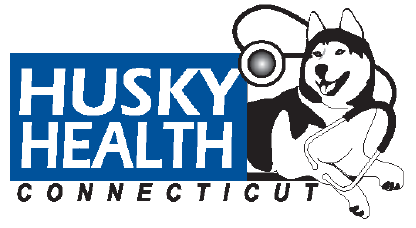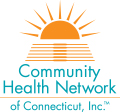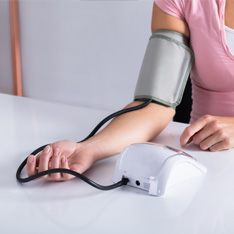High Blood Pressure: Finding and Getting to My Healthy Range
High Blood Pressure is a condition that changes the flow of blood through your body.
We understand that living with high blood pressure can be difficult. You don’t have to figure it all out on your own. With the right tools and support, you can feel your best and spend more time doing the things that are important to you.
List of topics:
Understanding Blood Pressure
Blood Pressure (BP) is the force of blood pushing against the walls of your arteries, which carry blood from your heart to other parts of your body.
Hypertension is the medical term for high blood pressure. When blood pressure is high over a period of time, it can lead to other health problems.
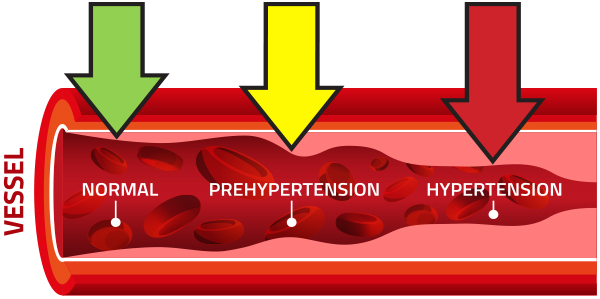
Finding Your Healthy Range for Blood Pressure
Think of your healthy blood pressure range as the target you should aim for. That target is determined by your provider. It’s important for you to monitor and follow up with your provider regularly.
You and your healthcare provider should pick a healthy blood pressure range that is right for you!
Control your Blood Pressure: Understand your BP Numbers Download Printable pdf
| Blood Pressure Category | Upper # (Systolic) |
Lower # (Diastolic) |
Things to talk about with my healthcare provider |
|---|---|---|---|
| Normal | less than 120 | less than 80 | How often your blood pressure should be monitored |
| Elevated | 120-129 | Less than 80 |
|
| High Blood Pressure (Hypertension Stage 1) |
130-139 | 80-89 |
|
| High Blood Pressure (Hypertension Stage 2) |
140 or higher | 90 or higher |
|
| Dangerously High Blood Pressure (Hypertensive Crisis) |
Higher than 180 | Higher than 120 | Call 911 or get to an Emergency Department RIGHT AWAY if you have any of the following signs of high blood pressure:
Call your provider’s office immediately to let them know that your blood pressure is above 180 or higher than 120 if you don’t have any of the signs listed above. |
How do I know what my BP is?
Blood pressure is measured using two numbers. The first number, called systolic blood pressure, measures the pressure in your blood vessels when your heart beats.
The second number, called diastolic blood pressure, measures the pressure in your blood vessels when your heart rests between beats.
Measuring your blood pressure is easy and quick. Consider using these tips at home or at your provider’s office when taking your Blood Pressure to get an accurate reading.
7 Tips to Getting a Correct Blood Pressure Reading
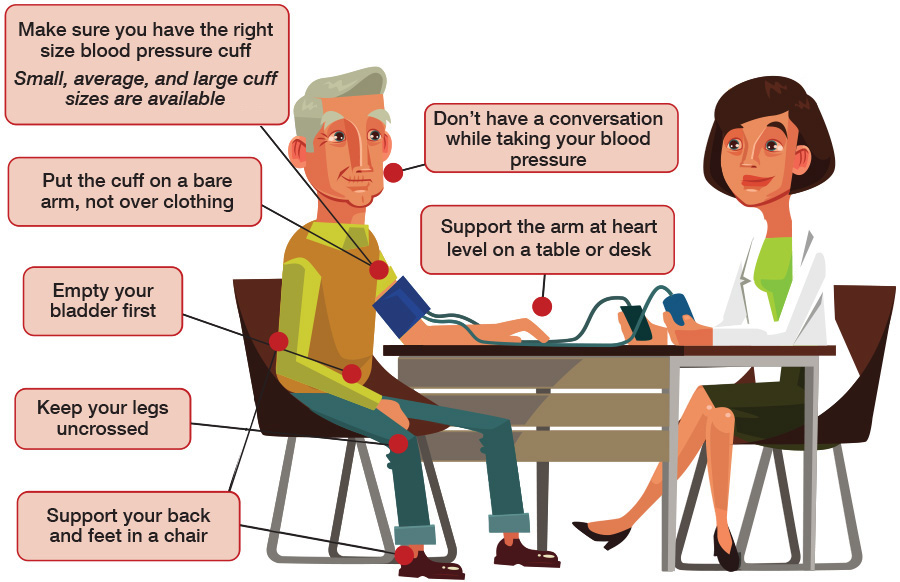
What is important to you?
Living with high blood pressure is not always easy. Knowing what is important to you can help you develop the right treatment plan for you. When you know and value the things that are important to you, it is easier for you to follow your plan.
Use the list below to pick what is important to you:
- Being able to take care of my family
- Being able to start a family
- Being able to have a healthy pregnancy
- Helping my children grow up
- Feeling my best
- Being able to do the things I like despite my high blood pressure
- Having the energy I need to do the things that are important to me
- Reducing the chances of having problems with my heart, brain and kidneys
- Protecting myself from high blood pressure
What should you consider doing?
Now that you know what’s important to you, write it down in a place where you will see it.
This could be:
- on your phone background
- a note on your refrigerator
- by your toothbrush
- in a BP monitoring app
- with your blood pressure machine and/or medications
It will help remind you why managing your blood pressure is so important.
What gets in the way of taking care of your blood pressure?
Each person has different things that get in the way of taking care of their blood pressure. The first step is to identify them. What gets in your way or makes it hard for you to take care of your blood pressure?
The following list may help you get started:
Download: What Gets in Your Way?What should you consider doing?
Help is available to help you overcome these barriers. Make a call to one of the programs listed in the “What Gets in Your Way” document to get you started.
- Let your provider know what is getting in your way
- HUSKY Health Intensive Care Management (ICM) has nurses who will take the time to find out what is important to you and find you the services that will help you feel your best. If you are ready to enroll in ICM, call 1.800.859.9889 x2023 or visit our ICM page to learn more
- 2-1-1 is your connection to all of the local services you may need: food, housing, child care, and much more. Dial 2-1-1 or visit the 2-1-1 website
- If you have a health question and your provider or your provider’s answering service is not available, you can call the 24/7 Nurse Helpline at 1.800.859.9889
Preparing to Make a Change

Being as healthy as possible with high blood pressure usually involves the following self-care behaviors:
- Healthy Eating
- Being Active
- Taking Medications
- Reducing Risks
- Problem Solving
- Healthy Coping
What should you consider doing?
Lifestyle changes can help lower your blood pressure. Each of the following changes can help you lower your blood pressure. Click on each change to learn more.
- Reaching a healthy weight: Even a small amount of weight loss can lower your blood pressure.
- Learn more about how you can reach a healthy weight by clicking here
- Taking Medications: It is important to know about the medications you are taking to lower your high blood pressure.
- Talk to your provider about how these medications can help lower your blood pressure
- Make sure you tell your provider if you are having a hard time taking your medications
- Quitting smoking: Smoking can raise your blood pressure!
- Think about talking with your healthcare provider about ways to quit smoking. There are programs and medicines that can help
- Call the CT Quitline at 1-800-QUITNOW or 1.800.784.8669 for help with quitting
- Eating less salt (sodium): Salt can raise blood pressure. Try the following tips to eat less salt.
- Read the labels when purchasing food to see how much salt or sodium is included in the item
- Try salt-free seasoning, or herbs and spices
- Choose low-salt or no-salt snacks, deli meats, and canned foods
- Click here to see more tips for using less salt
- Move more: Doing something active every day can help you manage your blood pressure, feel better, and manage your weight and stress.
- It could be as easy as walking or stepping in place while you are brushing your teeth, on the phone or watching TV
- IMPORTANT! If you are not very active, talk with your healthcare provider before you get started. He or she can help you figure out what is best for you
- How to Start a Physical Activity Routine
- Managing stress: Stress can raise blood pressure. Your healthcare provider can help you. Talking about the type and amount of stress you are having will help him or her suggest ways that you can manage your stress.
- Relaxation methods, a counselor, health coach, or class may help you deal with your stress
- Manage your blood pressure: Reduce your risk of heart disease due to high blood pressure and diabetes. Click here to learn more.
Making the Right Plan for You
Once you decide what you would like to work on, you can set a goal. Goals give you a clear picture of what is important to you. You are more likely to reach your goals when you write them down and have a good plan. Remember to start with small changes in your self-care routine and take it one step at a time!
What should you consider doing?
- Making an appointment with your provider to discuss your plan for controlling your blood pressure
- Asking your provider how you can get a blood pressure cuff for you to use at home
- Using a BP monitoring app or paper log to keep track of your blood pressure regularly
- Sharing your goal(s) with your family and friends so they can support you
High Blood Pressure during Pregnancy
It is important to know your blood pressure before you get pregnant. It is more important to manage high blood pressure before, during, and after pregnancy.
Why is it important?
High blood pressure during pregnancy may result in early delivery and low birth weight. You may be at higher risk for high blood pressure during pregnancy, known as preeclampsia.
- Consider talking with your provider about your risk.
What should you consider doing?

Before you are pregnant:
- Having a regular check up with your Primary Care Provider will ensure that you are healthy.
- If you need help finding a provider or scheduling an appointment, please contact Member Engagement Services at 1.800.859.9889 from 8:00 a.m. to 6:00 p.m.
- If you have high blood pressure you may want to consider delaying a pregnancy until your blood pressure is under control.
- Getting to a healthy weight may help you control your blood pressure.
- Talking to your provider will help you decide the weight that’s right for you
- Learn more about how you can reach a healthy weight by clicking here
- Doing something active every day will help you feel better, maintain your weight and manage your stress, which will help lower your blood pressure.
- Talk to your provider about what exercises are best for you
- Smoking is harmful, but especially for people with high blood pressure because the nicotine in tobacco damages blood vessel walls and raises your blood pressure even more.
- You may want to consider delaying a pregnancy until you are able to quit smoking. This will benefit your health and your baby’s
- Call the CT Quitline at 1-800-QUITNOW or 1.800.784.8669 for help with quitting

After you are pregnant:
- Try to go to your OB healthcare provider as soon as you believe you may be pregnant.
- If you need help finding a provider or scheduling an appointment, please contact Member Engagement Services at 1.800.859.9889 from 8:00 a.m. to 6:00 p.m.
- Going to all your prenatal care checkups, even if you’re feeling fine, is important so that your provider can make sure that you and your baby are healthy and growing well.
- Make sure you schedule your next appointment before leaving the provider's office. This way you can plan ahead and make all necessary arrangements
- If you need medicine to control your blood pressure, it is important that you take it every day.
- Talk to your provider to help you choose a medicine that’s safe for you and your baby
- Eating healthy foods will help to keep you and your baby healthy.
- Stay away from foods that are high in salt, like salty snacks, deli meats, soups and canned foods. They can raise your blood pressure
- Learn more about how you can make healthier food choices here
- Staying active will help keep you and your baby healthy.
- Being active for 30 minutes each day can help you manage your weight, reduce stress and prevent problems like preeclampsia
- Drinking alcohol, using street drugs, or abusing prescription drugs can harm you and your baby. It is not a good idea to take any of these while you are pregnant.
- Drug use including opioid use disorder during pregnancy has been linked to:
- Preterm Birth
- Breathing Problems
- Low Birth Weight
- Feeding Problems
- Call the CT Quitline at 1-800-QUITNOW or 1.800.784.8669 for help with quitting
This portion of the HUSKY Health website is managed by Community Health Network of Connecticut, Inc.®, the State of Connecticut’s Medical Administrative Services Organization for the HUSKY Health Program. For the general HUSKY Health website gateway, please visit portal.ct.gov/husky. HUSKY Health includes Medicaid and the Children’s Health Insurance Program, and is administered by the Connecticut Department of Social Services.
